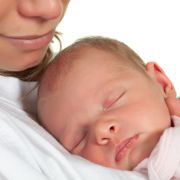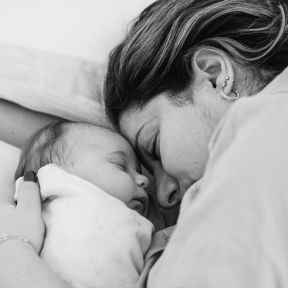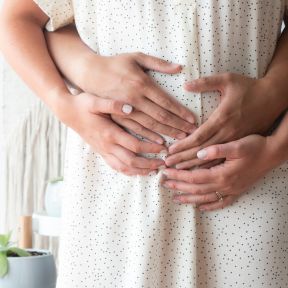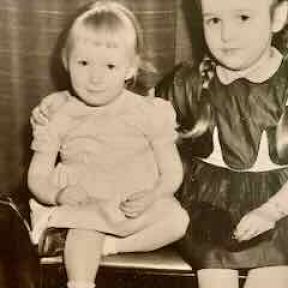
Postpartum Psychosis
Postpartum psychosis is a rare experience that occurs when a woman who has recently given birth experiences a psychotic episode. These episodes are characterized by a loss of touch with reality, which can include delusional beliefs, labile moods, hallucinations, and other symptoms. This can be frightening to experience for the woman and for her loved ones. Such symptoms may also put the woman’s newborn at risk, as the woman’s behaviors may be erratic and result in the neglect of her child.
Unlike postpartum depression, which affects up to 60 percent of new mothers, instances of postpartum psychosis are rare, affecting just 1 to 2 in 1,000 childbearing women.
Postpartum psychosis is an acute medical emergency that requires inpatient observation and medication. Prevention is an important treatment, as women already diagnosed with bipolar disorder should be aware that they have an elevated risk of postpartum psychosis and consult their doctor or psychiatrist to adjust medication in the months prior to or after delivery.
There is no distinct diagnosis of postpartum psychosis in the DSM-5. Rather, it falls under the category, “psychotic disorder not otherwise specified."
Contents

Between two days and four weeks after giving birth, symptoms of postpartum psychosis may include:
- Labile mood
- Cognitive disorganization
- Delusional thoughts
- Insomnia
- Hallucinations
- Agitation
- Confusion
- Paranoia
- Irritability
- Bizarre thoughts or behavior
- Elation
- Depersonalization
- Anxiety
- Homicidal ideation
- Infanticidal ideation
The symptoms are more pronounced than those of a mood disorder and represent a stark difference from the woman’s previous functioning. The symptoms are not limited to those above, and can be different from person to person.
While rare, infanticide occurs in about 1 to 4 percent of cases of postpartum psychosis. Even in the absence of infanticidal ideation, danger to the child may also come from risky or erratic behavior as a result of the symptoms.
Suicide is a risk for women with postpartum psychosis. One study found that 19 percent of women admitted for observation during an episode of postpartum psychosis experienced suicidal ideation. Research indicates that about 2 out of 1,000 women who develop the symptoms of postpartum psychosis may act on such ideation and commit suicide.
For all these reasons, it’s important that a woman experiencing symptoms of postpartum psychosis be monitored and helped by those around her.
Among women hospitalized for postpartum psychosis, 28 to 38 percent indicated delusions related to their infants, including that doctors or family members might harm the child, or that the woman’s breast milk had become poisonous. Researchers report that around 62 percent of women with postpartum psychosis believe their feelings, thoughts, or actions are out of their control or are actively being controlled by an outside force. Delusional thoughts can include paranoid feelings that doctors and family members intend to harm the woman.
Postpartum psychosis is a rare event. It affects approximately 1 to 2 out of every 1,000 women. For women with bipolar disorder, the chances of developing it are 100 times higher, at around 1 to 2 out of 100. For women who have previously experienced postpartum psychosis, about 1 in 7 will experience symptoms during a subsequent childbirth. The average age of onset for postpartum psychosis is 26.3 years old, according to studies, which is about the age most women are having their first or second child.

According to research, 72 to 88 percent of women who experience postpartum psychosis have bipolar disorder (Spinelli, 2009) (Sit, Rothschild, Wisner, 2006) and 4 to 12 percent have a schizoaffective disorder. Recent research indicates that, in many cases, postpartum psychosis may be a presentation of bipolar or another affective disorder.
Several factors contribute to the onset of postpartum psychosis, the most significant of them being the tremendous hormonal shifts women’s bodies experience during and after childbirth (Kamperman, Veldman-Hoek, Wesseloo, Blackmore, Bergink, 2017). Women with bipolar disorder are typically sensitive to the loss of estrogen and progesterone, which can rise to 200 times their normal levels during gestation and quickly fall after delivery.
Another precipitating factor is the lack of sleep mothers may experience during the process. The general stress associated with the situation can trigger symptoms as well.
Women who discontinue their use of medication, particularly those on lithium, are about three times as likely to experience either the symptoms of bipolar disorder or postpartum psychosis compared with those who remain on the medication.
According to some research, up to 30 percent of women who experience postpartum psychosis do not have bipolar disorder and have no family history of it (Spinelli, 2009).
In most cases, no. As many as 60 percent of women experience postpartum depression, whereas only 1 to 2 out of 1,000 women experience postpartum psychosis. Women with a personal or family history of bipolar or another affective disorder should pay attention if they are experiencing depressive symptoms, as there is a chance they could be a precursor to postpartum psychosis. What the two experiences do share is emotional dysregulation caused by the swings in hormone levels that come with childbirth.
Postpartum psychosis may be genetic insofar as bipolar disorder and schizoaffective disorder can be heritable. But it is not purely genetic. Most women who have a family history of these disorders do not develop postpartum psychosis. Additionally, some women with no psychiatric diagnoses and no family history of them can develop postpartum psychosis.

Prevention, in the case of postpartum psychosis, may be the best treatment. Women with a history of bipolar disorder, or who have a family history of bipolar disorder should be informed of the risk of postpartum psychosis and she and her family should monitor her for signs of mood swings, confusion, or strange beliefs that can precede a full-blown psychotic event. Should symptoms appear, the woman or her family should contact her physician immediately.
In the months prior to delivery, women at risk should consult with their psychiatrists to consider treatment options for postpartum psychosis. Lithium has been identified as a drug that may be helpful as a prophylactic for the condition. A small study of women who’d previously had postpartum psychosis also found lithium treatments effective when administered shortly after delivery.
Preventing sleep loss in the days and weeks leading up to delivery may be effective in averting an episode of postpartum psychosis.
Prophylactic administration of estrogen is currently a therapy under investigation.
Breastfeeding while on psychiatric medications to treat postpartum psychosis should be done only in consultation with a psychiatrist. If it is deemed possible to breastfeed, it’s important for the woman to monitor the newborn for signs of poor hydration, poor feeding, sedation, or other irregularities, and talk to a doctor about changing medications or ceasing breastfeeding if they arise.

In treating episodes of postpartum psychosis, it is most important to identify the symptoms quickly. Treatment generally takes the form of inpatient observation as well as psychotropic medication. Physicians should closely monitor women going through an episode of psychosis, as she may present a danger to herself or her child if she is experiencing cognitive disorganization, delusions, or hallucinations.
The specifics of treatment vary from patient to patient, typically based on how a woman has responded to past medications for bipolar disorder, if she has taken them, her drug tolerability, and her preference for breastfeeding.
Psychiatric treatments can include antipsychotic medications, such as olanzapine; antimanic agents, such as lithium or carbamzepine; antiepileptic drugs, such as valproate; mood stabilizers, such as benzodiazepines; and possibly electroconvulsive therapy (ECT). Antidepressant medications, such as SSRIs may present complications, as they can induce bipolar cycling.
The data indicate that most women with bipolar disorder who experience postpartum psychosis recover fully, meaning they don’t have recurrent psychotic episodes or symptoms (Wesseloo, 2018). Some women will experience subsequent episodes, although women who seek treatment earlier do so at a lower rate.
Outpatient psychotherapy can be useful for women recovering from postpartum psychosis. Frequent follow-up medical visits are important for any woman who experiences an instance of the illness.
Family and friends should make sure the affected woman is not overburdened by childcare and able to get sleep to recover from the illness.
The psychotic episode will, in time, resolve. Treatment may include some combination of inpatient observation, psychiatric medication, and therapy, and is widely effective. In some cases, women may experience subsequent bouts of psychosis, which would be treated in the same fashion as the original experience.










